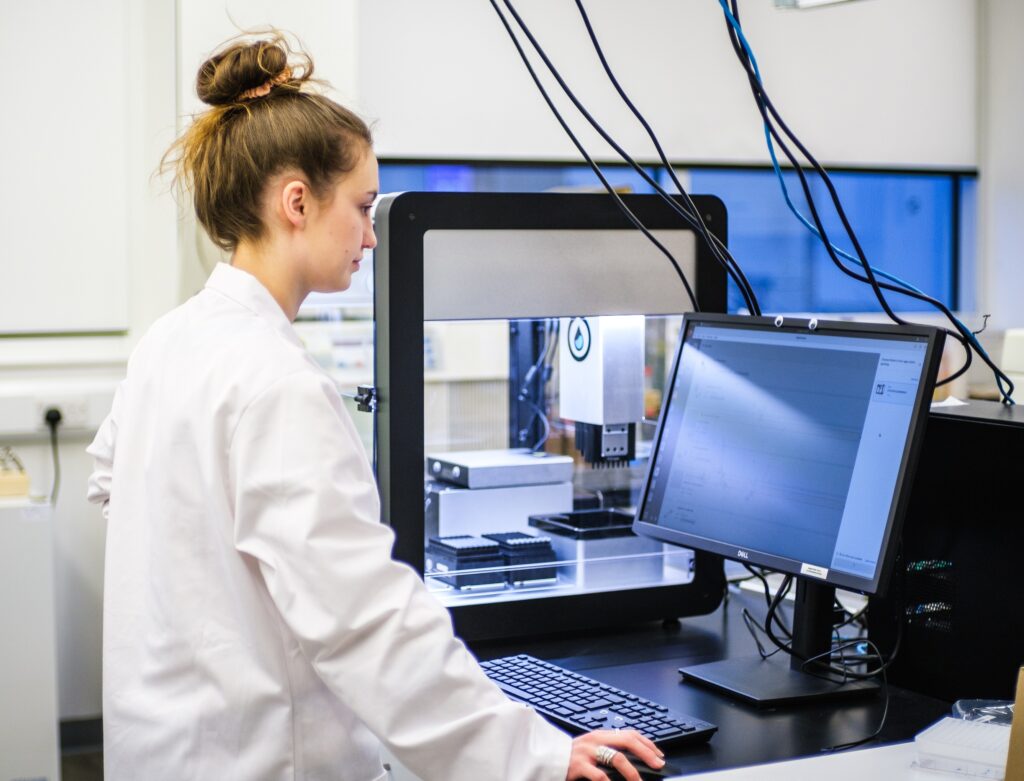Researchers in Scotland have teamed up with an American biotech firm to harness an AI tool to speed up the design of drugs for certain diseases.
University of Edinburgh academics joined together with experts from Neochromosome to use AI in the design and selection of the best-performing enzymes used in therapeutics for the treatment of genetic and autoimmune disorders including diabetes.
Described as searching for a ‘needle in a haystack’, researchers typically use a labour intensive, trial-and-error approach to engineer enzymes for the treatment of disease.
However, using an AI system, they will be able to choose the best potential candidates from millions of possible combinations quickly and accurately.
The research team, involving the University of Edinburgh and Neochromosome – a synthetic DNA and cell engineering company – has developed and tested the tool to find a complex benchmark enzyme in the first instance, with a view to it being used for a range of applications including medical treatment. The project is also supported by the Industrial Biotechnology Innovation Centre (IBioIC).
Enzyme Replacement Therapy (ERT) is used to treat a range of genetic disorders which normally have no cure, but where treatment can significantly improve a patient’s quality of life. It is usually delivered through an intravenous infusion and replaces a missing enzyme, or one that is not functioning well, with another that will do its desired job in the body.
The process of creating the new enzymes is usually laborious, expensive and complicated, with each small change to an enzyme’s makeup potentially rendering it non-functional.
By contrast, the AI tool can be used to determine a range of potential options, with tests so far showing a 85% accuracy rate. Rather than starting from scratch by going through a series of random combinations, the researchers can use the programme to filter the options depending on what they want the enzyme to do. A shortlist of the most promising enzymes can then be tested in a lab.
The tool has already led Neochromosome and the University of Edinburgh to develop a library of 40 new engineered enzymes, which have never before been seen in nature. In the future, the AI programme could also be applied to other biochemistry techniques and in sectors where enzymes play a crucial role, such as manufacturing, food processing, and textiles.
Dr Giovanni Stracquadanio, senior lecturer in synthetic biology and co-director of the Edinburgh Genome Foundry at the University of Edinburgh, said: “Not only can the AI tool improve the accuracy of the selection of enzymes and the time taken to filter through the options, but it may also boost the effectiveness of treatments for patients and cut down infusion times. With access to specific data that informs the AI programme, we can make sure the best possible treatment is used, which may, in fact, be more targeted or more efficient than any enzymes previously hand-selected.”
Greg Brittingham, product strategy and development lead at Nero chromosome, said: “If we can eliminate non-functional combinations before we get into the lab, we can iterate more quickly and discover better enzymes. By combining this prediction tool with specific hypotheses about how different regions of the protein are involved in function, we can imagine a future where researchers can run tens or hundreds of iterations in the time it takes to run a single standard discovery campaign. We are excited to be involved in this project and believe that reliable and low-cost access to defined DNA variant libraries and automation tools are essential to realizing this future.”
Dr Liz Fletcher, director of business engagement at IBioIC, added: “AI is already being used across a wide range of industries, and could bring significant improvements to biotechnology processes, as this project has shown. Exploration of cutting-edge technology and innovation can bring a range of benefits for the life sciences sector, both for the patients who need essential treatment, as well as the scientists developing the solutions.”
